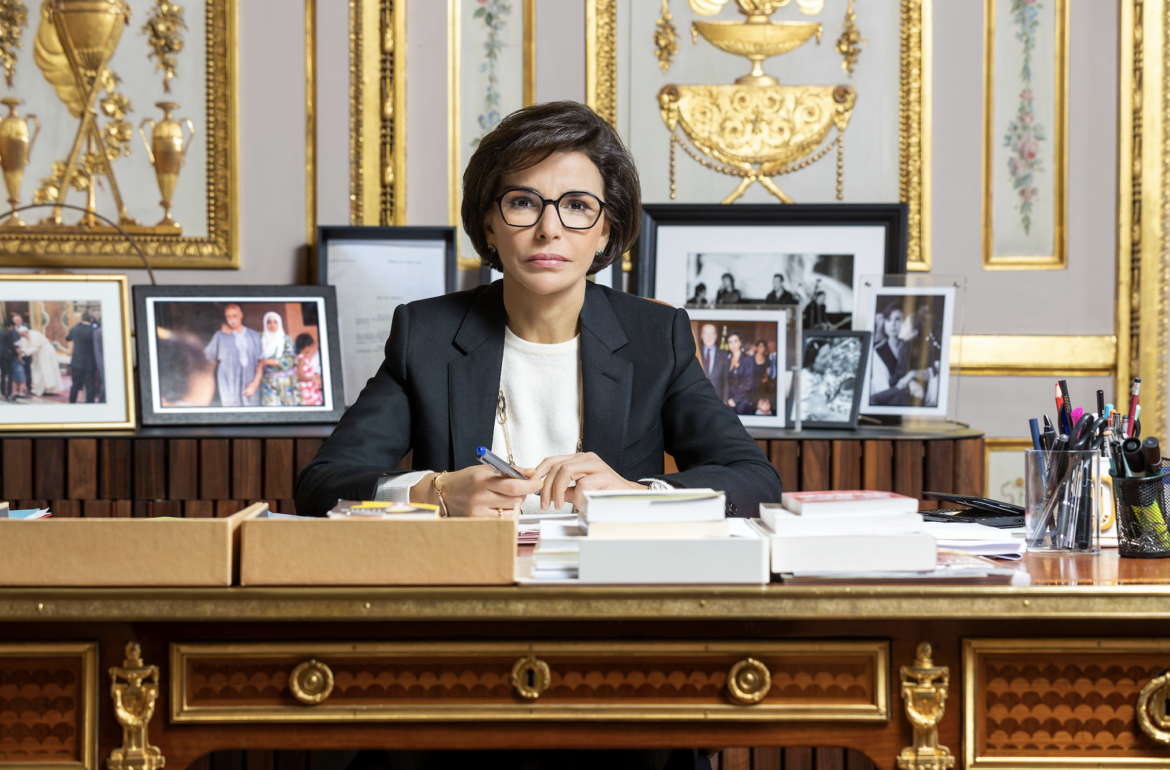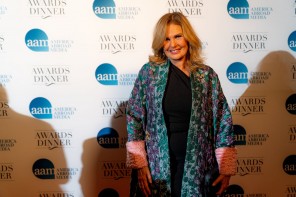Rachida Dati has emerged as one of France’s most prominent and dynamic female politicians. Born into a North African family as the second of 12 children, Dati overcame significant economic challenges growing up in Chalon-sur-Saône. Despite these hardships, she developed a strong drive to succeed, balancing multiple jobs while excelling academically and supporting her family. Her determination led her to study economics and law at university.
Rachida Dati is respected for her pioneering role in French politics, her contributions to legal reforms, and her advocacy for diversity and women’s rights. Despite facing challenges, her resilience and determination have solidified her status as a significant figure in both national and European political landscapes.
She stands out as a trailblazing force, showcasing an extraordinary career journey from banker, lawyer, and magistrate to the Minister of Culture under Prime Minister Gabriel Attal. Her wealth of experience from her distinguished past roles includes Minister of Justice under Nicolas Sarkozy, Member of the European Parliament, and Mayor of Paris’s 7th arrondissement. Dati’s career is a testament to her extraordinary networking skills, relentless drive, and strategic foresight. Her rise through the ranks of both national and European politics highlights her as a powerful example of female leadership and perseverance, inspiring many with her commitment and achievements.
As part of our Leading Women series, we want to highlight the professional challenges and career aspirations of one of the most respected women in Europe. In this story, we speak to Rachida about her contributions to legal reforms, her advocacy for diversity and women’s rights, the challenges she has faced, and her remarkable journey.
Could you share how your determination to break barriers and challenge existing norms contributed to your achievement as the first woman of North African descent to hold a key ministerial position in France?
As an elected official, I am seeking real equality: I do not ask for preferential treatment, but I do not let anyone devalue me. It’s a constant commitment that goes back to my childhood. I never accepted any form of racism or discrimination. But I have always believed in the importance of diversity and inclusion in politics. This belief has led me to fight for my ideas and never accept the status quo.
How does it feel to be a role model for women who admire your rise to a top political position despite cultural challenges?
I didn’t build my career thinking about inspiring others, but I was inspired by several encounters I made and that have marked me a lot, whatever the context. In France and abroad, women and men have succeeded in making their difficulties a force: fighting stereotypes and cultural barriers every day makes you stronger. I am honored to be seen as a role model for women. I am deeply moved by these expressions of support, especially when they come from young women. If my background can draw interest, it should not be an exception.
How do you perceive your impact in demonstrating that women from diverse backgrounds can attain significant power?
My journey has succeeded in demonstrating that a woman, whatever her origins, can take on important responsibilities without denying herself and keeping her freedom. I often say that the first right of women is freedom. Freedom to choose one’s own career path, including professional, economic and intellectual freedom. It is essential.
How did your academic background in law and economics, along with your career as a magistrate and legal advisor, influence your decision to enter the political arena?
As a teenager, I never dreamed of becoming a politician. Who would have thought that I would become a minister? At 16, I got my first job as a nurse’s aide in a hospital in Châlon-sur-Saône, where I grew up. I worked nights, late shifts. My rejection of injustices reinforced my determination to practice law by becoming a magistrate. I found out a new space of freedom and responsibility. Becoming a magistrate was for me and my parents an immense pride. I turned to politics as a continuation of that commitment. I started working for Nicolas Sarkozy, then Minister of the Interior, in 2002. He helped me see how politics could make a positive change. That time changed my life. After the 2007 presidential election and his victory, President Sarkozy offered me to become his Minister of Justice. It was an honour and a challenge that I accepted with pleasure.
What personal experiences have driven your commitment to addressing social inequality, and how have these experiences fueled your dedication to creating a fairer and more just society?
Whenever my legitimacy to serve has been called into question, it has fueled my strength and determination to create a more just society. I was certainly compelled to put in more effort than others, and I turned it to my advantage. I don’t usually feel sorry for myself. That’s why, from a very young age, I knew I was going to have to fight, I bet my whole life on work and perseverance. One could say I’m a workaholic. Merit and work are essential values for me.
How have your personal convictions and values guided your career and political journey? Could you share an instance where you re-evaluated and changed a deeply held belief?
In all the responsibilities I have exercised, my encounters with all the components of society, such as people struggling with their daily difficulties, brought me back to the roots of my political commitment. The personal knowledge of these difficulties gave me the strength to engage and made me feel legitimate in my action. I don’t reassess my beliefs. I never betrayed my beliefs, they have always been the same. My commitments are all personal. They relate to my life, my encounters, my experience, I can’t draw a distinction between the causes for which I want to commit myself and what I have been through during my whole life.
In your view, how are efforts to secure basic needs and education intertwined with political activism? Why do you believe addressing social inequality is essential for societal progress?
Education is the first of all needs to fight against inequalities. I believe that it is in school that you can give a child the best chance to open up to the world and discover his or her abilities. The school is the framework in which everyone can find their place in society. In my opinion, it should be the main actor in the fight against social inequalities and for the construction of a more just society.
During your time as Minister of Justice, you implemented significant reforms such as plea bargaining and updates to the juvenile justice system. Could you discuss the challenges you faced with these changes and how they have contributed to modernizing the French legal system?
When I was appointed Minister of Justice, I immediately asked for a comprehensive audit of the French judicial system. Structural reforms were urgently needed, These include the increased use of criminal transactions to facilitate the reintegration of offenders into society and the creation of the first juvenile correctional facilities in France. Juvenile correctional courts have also been established to expedite court proceedings and deliver justice. Since I became a magistrate, I am particularly sensitive to the fact that justice also prevails in places of deprivation of liberty. Therefore, I created the position of Comptroller General to monitor the conditions of detention in French prisons and to guarantee respect for the fundamental rights of people deprived of their liberty, while at the same time giving it administrative autonomy which secures the independence of its opinions and decisions. As expected, these reforms were met with a lot of skepticism and resistance because they had an innovative effect. Political foes were opposed to my direct approach and, above all, to me. They tried to stop me from implementing these reforms because I was a sort of UFO in the French political landscape. Remember : they did not expect someone with my personal background to be a Minister. They wanted to make me pay for it. They put their party before the country. I always chose my country first. Moreover, these structural reforms were highly expected and supported by a large majority of the French public opinion. They were eventually adopted successfully and proved to be effective. As Minister of Justice, I helped reform the 2008 Constitution in order to strengthen the powers of Parliament and citizens’ rights. This reform introduced inter alia the Ombudsman, the Priority Issue of Constitutionality and citizen initiative referendums.
How do you feel about the outcomes of your involvement in global justice and security discussions and your collaborations with international policymakers and leaders?
France held the presidency of the Council of the European Union from July to December 2008. I chaired meetings with Justice Ministers from EU Member States. We have made many proposals to better fight terrorism and organized crime. I have been a Member of the European Parliament for ten years and have continued to pursue these discussions and this commitment. In particular, an important step forward was made with the endorsement of my report on the awareness of organising at European level a coordinated response to the problems of radicalisation, including through agreements with third countries. During that time, I also learned a lot from the programs in Saudi Arabia.
As a Member of the European Parliament, what legislative work have you been involved in concerning human rights, social justice, and anti-discrimination measures at the European level?
In my opinion, fighting is a way to strengthen social justice and make this intellectual concept a reality for those who need it. As a Member of the European Parliament, I have strongly supported all initiatives to defend human rights around the world. For example, on the subject of deprivation of liberty, I was a shadow rapporteur on prison systems and conditions in prisons. And when I was Minister of Justice, at the European level, I helped implement laws against racism and xenophobia in Europe. If one wants the citizen to trust the judicial institution, everyone must be guaranteed the right to a fair trial, including in places of deprivation of liberty. I truly believe it.
What is your perspective on the role of women in politics, particularly in light of France’s law promoting equal access to political representation for men and women, which has helped make political life more inclusive?
I have always expressed my support for gender parity and equal access to political representation between men and women. Increasing the representation of women in politics and creating a more inclusive environment is essential and necessary. When I became Minister of Justice, what comments were not made about me ! And sometimes with unheard-of violence. I don’t think the same comments were made to other male members of the government. Upon entering the government, I immediately felt the immense responsibility that was mine: to fight for women and against any form of social determinism.
What specific policies or initiatives have you championed to advance women’s rights and gender equality, and what impact do you hope they will have?
In my life as a woman, in my experience as a magistrate and elected official, I have accompanied all the women who came to me. I have helped them. That is why, when I was a Minister of Justice, I continued to act in this direction. I have fought to establish family mediation before any divorce proceedings in order to encourage a better amicable resolution of family conflicts. In this perspective, to protect women victims of violence, I was the first to set up the « Téléphone Grave Danger » (TGD) (Serious Danger Telephone) experiment. I was the only one. They said it would be expensive but not always effective. I said that a woman’s life is priceless. Inequalities between women and men also occur in the workplace. As Minister of Justice, I have fought for the practical implementation of the law on equal pay between men and women. Women must have the same opportunities as men in terms of employment and career.
What personal experiences or reasons have motivated you to prioritize women’s empowerment?
I have been inspired by the women who shaped my life. My mother was my first obvious source of inspiration. She taught me and my sisters a lot. We owe her a lot. The women I met later contributed to my training and commitment. In culture, I have a personal admiration for the Egyptian singer Oum Kalthoum, for her life, for the work she created, for the hope she raised. I think women have something specific to bring. A personal approach to the subjects that allows a better understanding of problems, especially political ones.
How have your personal convictions and values guided your career and political journey?
They have been critical. Our values and beliefs shape our entire lives, including our work, our commitment. I have never betrayed my own convictions and values. For instance, when I agreed to become a Minister, I made this decision with only one thing in mind: I knew it was my duty to help my country and the French people. I knew that I would work to be up to the task.
Is there a particular woman you regard as a role model who has had a significant impact on you? Please describe a specific quality or experience of hers that you find particularly compelling.
My mom. She is a model of joie de vivre and has passed on to me values of family solidarity. Thanks to her, as she taught me, I was enabled to lead my life with dignity, regardless of the struggles and challenges I may face. For my parents, work was a priority. They wanted their daughters to be independent and have more choice than they ever had in their lives. They have always encouraged me.
Throughout your term as Mayor of the 7th Arrondissement, you have focused on urban development, public services, cultural preservation, safety, and social cohesion. Can you share some of your most significant accomplishments in these areas and how they have collectively improved the community and enhanced the arrondissement’s reputation?
Ever since my first election as Mayor of the 7th arrondissement in 2008, improving the quality of life of all residents has been my first priority. In many ways, living in the 7th arrondissement is a blessing. From the world-famous Eiffel Tower to the Musée d’Orsay, from the National Assembly to Matignon, where our prime minister works, the 7th arrondissement reflects the best of what France has to offer. This particular identity must therefore be protected from any temptation to transform it into a place that would not represent its history and the historical heritage of France. I would like to share with you a cultural project in progress: the rehabilitation of the fantastic cinema La Pagode, in a Japanese-style building. It should open its doors next year. It is both an ambitious urban development to open a cinema in the current circumstances and a valuable addition to the cultural fabric of the 7th arrondissement. The 7th arrondissement has four particularly remarkable churches for which I have committed myself to restore. I have found public and private funds
If elected as Mayor of Paris in 2026, what long-term goals do you envision for the city, and how do you plan to ensure these goals are achieved during your tenure? Additionally, how will you measure the success of your administration in transforming Paris and improving the lives of its residents?
Paris, once the most beautiful city in the world, has been neglected over the past decade due to questionable political choices. For example, most Parisians do not share the dream of the current mayor of a city geared towards cyclists and, because it could easily turn Paris into a totally asphyxiated city due to traffic jams, not to mention the absence of a traffic plan. The current mayor has made it clear that she doesn’t want a car. The price to pay is extremely heavy: many Parisians are left behind by this policy (disabled, elderly people). That’s not what Paris needs. I sincerely believe that the Mayor of Paris should always keep in mind the following objectives: to keep our streets clean, to ensure the safety of each resident, Improving housing conditions because of the current critical need for affordable and reliable home, and providing effective public services. To achieve these goals, an independent public financial audit seems inevitable. The last one was done twenty years ago! Since then, the city of Paris has spent too much and its debt is immeasurable. I will therefore implement a debt-reduction strategy to get Paris back on track. Many Parisians have alerted me to the increasing insecurity in our streets. They are right and their claims are supported by alarming statistics. To fight against dangerous criminals, the arming of our Parisian police is necessary. Installing additional surveillance cameras is another policy I will be pursuing to make Paris safe again. Above all, the Mayor of Paris has the duty to protect and preserve the quality of life and the exceptional heritage of the city. Paris lost more than 100,000 inhabitants in a decade. It is a worrying trend that I will put an end to by helping families settle in Paris and providing their children with a pleasant environment in which to grow up. If the population of Paris would increase again, I would consider this as a positive result of my policy.
Are there any upcoming events or plans involving Saudi Arabia that you can share? Additionally, how do you view the current situation of women in Saudi Arabia, especially considering recent reforms and Vision 2030?”
Saudi Arabia’s Vision 2030 reflects a strong political will to empower women, To increase their economic participation and to take advantage of their capacities and knowledge. It is a statement of confidence towards women and a lasting legacy for Saudi Arabia. Just a few years earlier, in 2017, His Majesty King Salman recognized the right of Saudi women to drive. This decision highlights how women’s rights have progressed in recent years in Saudi Arabia. I am sure that Saudi women are eager to take a significant part in Saudi Arabia’s 2030 Vision. I know that Saudi women have contributed significantly to the success of Saudi Arabia’s 2030 Vision. I speak from experience: women are often the most patriotic and disinterested of citizens.
Text by Suna Ahmed
Photographer Alain Guizard




